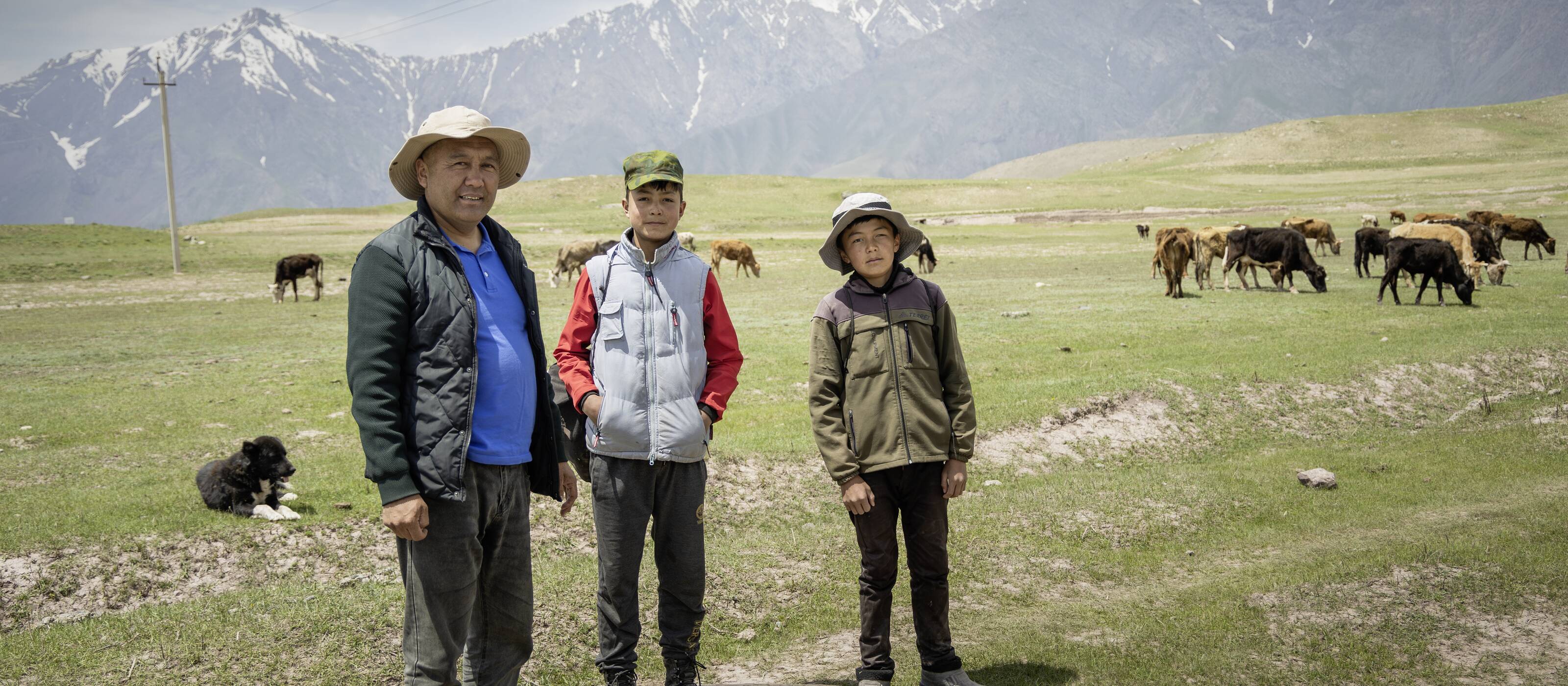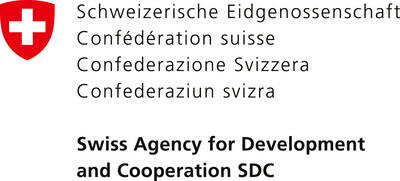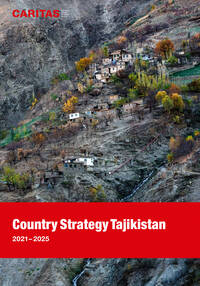

Tajikistan
What we do
Tajikistan’s climatic conditions are challenging. With less than 10% of national territory suitable for agriculture, food security is of persistent concern. 30% of the population live below the national poverty line, inducing work migration that often leaves women and the elderly in charge of rural farms. Exacerbated by land degradation from deforestation and overgrazing, floods and landslides threaten lives and goods, especially in mountain areas. Rural communities are highly vulnerable to these events and to weather impacts onto their agricultural production.
Sustainability in rural livelihood systems can only be realized through a shift from reactive response for coping with weather impacts to weather-informed decision making and effective adaptation to climate change. This will require locally precise Weather, Water and Climate Services (WWCS), together with related options and decision-making criteria to improve livelihoods and well-being. Development of WWCS that are nationally provided, locally relevant, equally accessible and affordable is highly needed in Tajikistan and will be a novel core element of the country strategy 2021–2025. Building on a strong record of innovative projects on agricultural systems, disaster risk reduction and landscape restoration, these topics continue being the thematic backbone of Caritas Switzerland’s strategy in Tajikistan, with the ambition to reach larger scales and embedding into national policy systems.
This thematic focus and multi-stakeholder approach embody a level of complexity that necessitates the engagement of novel scientific, government and business partners. Caritas Switzerland has initiated and explores partnerships with Swiss and international organizations to support related Tajik line ministries and governmental agencies in addressing the many challenges that are inherent to an informed and sustainable management of natural resources and in agriculture under a changing climate. Leveraging the trust that Caritas Switzerland has built in country at all levels, Memorandums of Understanding with key go ernment partners are now in place, a key prerequisite for ensuring that benefits sustainably reach the rural poor.
Together with an ostensible shift in external funding priorities to regional (multi-country) initiatives, this country strategy provides significant opportunity in the medium term for regional engagement in Central Asia.
Objectives
Income
Caritas enables youth, minorities, smallholders and other vulnerable people to increase their income thanks to improved skills and a more inclusive agricultural market system.
- Smallholders, and other value chain actors, have gained access to information, tools and services needed to improve the production and processing of sustainable products and nutritious food as well as marketrelated services and business contacts to enter higher added-value markets.
Climate
Livelihoods are sustainably secured thanks to a management of natural resources which is adapted to climate variability and change and takes the health of supporting eco-systems into account.
- Agriculture and the management of natural resources are based on quantitative data, for example from weather stations and climate services.
Snapshot
- Engagement in the country since: 1996
- Our main partners: Committee on Emergency Situations and Civil Defense, Ministry of Agriculture of the Republic of Tajikistan, Agency of Hydrometeorology, Aga Khan Agency for Habitat, Aga Khan Foundation, Swiss Confederation, Institute for Snow and Avalanche Research (SLF), World Meteorological Organisation
- Our main donors: Swiss Agency for Development and Cooperation (SDC), World Food Programme, Government of Liechtenstein, Leopold Bachmann Foundation, Kreditanstalt für Wiederaufbau (KfW), European Union*, Deutsche Zusammenarbeit (BMZ)
*This is funded/co-funded by the European Union. Its contents are the sole responsibility of Caritas Switzerland and do not necessarily reflect the views of the European Union.
- Social-media:
Contacts


Header image: When Jamshedov's two sons are not attending school, they help out in the fields or tend the family's cows. © Reto Albertalli


